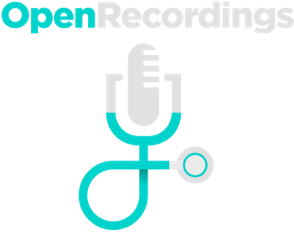
The Impact of Sharing Audio Recorded Clinic Visits on Self-Management in Older Adults: A Multisite Pilot Trial
Principal Investigators
Paul J. Barr, PhD MPH (Geisel School of Medicine at Dartmouth College); Kerri Cavanaugh, MD (Vanderbilt University Medical Center); Meredith C. Masel, PhD (University of Texas Medical Branch) (Multiple PIs)
Public Health Relevance
The proposed research will determine the effectiveness of the emerging strategy of audio recording and sharing of clinic visits on the ability of patients to manage their healthcare. It is expected that findings from this project will inform future policy related to the use of audio-recording as part of routine care and guide implementation strategies if audio recording is found to improve self-management ability and health related outcomes.
Funding Source
National Institute on Aging (NIA), R56AG061522
Project Period: 09/15/2019 - 5/31/2021
Other Project Staff
Dartmouth College: Martha Bruce, PhD; James O'Malley, PhD; Elizabeth Carpenter-Song, PhD; William Haslett, PhD; Michelle Dannenberg, MPH; Susan Tarczewski, CCRP; Reed Bratches, MPH, MALS; Jesse Schoonmaker, MD, MPH; Marielle Mugford, BS, CCRP; Vanderbilt University Medical Center: Sunil Kripalani, MD, MSc; Sonya Williams; University of Texas Medical Branch: James Goodwin, MD; Isamar Ortiz, BA
Patient Partners: Sheri Piper; Roger Arend
Project Summary
Up to eighty percent of clinic visit information is forgotten by patients immediately post visit. This is a significant barrier to self-management, especially in older adults with multimorbidity, leading to poor health outcomes. After visit summaries (AVS) can improve recall, yet concerns exist about their layout, accuracy and low patient uptake. Patients and clinicians have begun audio recording clinic visits. When patients receive an audio recording of the visit, 71% listen and 68% share it with a caregiver, resulting in greater recall. Despite its growing use, to date there is no research on the impact of recording and sharing clinic visits of patient self-management ability, health outcomes or healthcare utilization. The objective of this proposal is to conduct a multi-site pilot trial evaluating the impact of adding an audio recording of clinic visits (AUDIO) to usual care in older adults with diabetes and hypertension, compared to AVS alone (Usual Care; UC). The specific aims are: Aim 1 Conduct a three-site trial in primary care where older patients with diabetes and hypertension (n=90) will be randomized to receive an AVS plus audio recording (AUDIO) versus AVS alone (UC) for all scheduled clinic visits over 3 months; patients will be assessed at baseline, 1 week, and 3 months; Aim 2 Investigate and describe barriers and facilitators of the implementation of audio recordings among patients, caregivers, clinicians and clinic staff. We hypothesize: (1a) Compared to those receiving the AVS alone (UC), patients randomized to also receive audio recordings (AUDIO) of clinic visits will report a greater self-management ability (measured by the Patient Activation Measure–Short Form) at 3 months. We will also explore the impact of AUDIO on the clinic visit, health outcomes, healthcare utilization and whether these impacts are mediated by PAM-SF; (1b) The effect of AUDIO on self-management compared to UC will be greater for patients with low health literacy than for those with high health literacy. Applicants will explore whether the impact of audio recordings is greater for individuals with caregiver support or at highest risk of poor self- management, e.g., high disease burden, moderate to severe depression. In Aim 2, applicants will investigate factors related to the implementation of audio recording and develop recommendations for an implementation toolkit to guide future dissemination of recording. The research is innovative because: i) it seeks to shift current clinical practice where visit information is provided via AVS, by adding audio recording; ii) the routine provision of visit recordings over time moves beyond prior studies that focus on single recordings of specialty visits; and iii) a trial in real-world settings of patients with multimorbidity, regularly excluded from trials, is novel and has greater external validity. The results are expected to have a major positive impact as they will increase clinical understanding of the impact and implementation of audio recording on the significant challenge of improving patient self-management especially in the face of the public health burden of multimorbidity.

